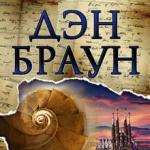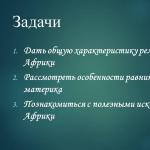Russian students won the ACM ICPC World Programming Championship in Beijing for the seventh time in a row. Since 2000, this is the 13th victory of participants from the Russian Federation. The first place was taken by the team from Moscow state university(MSU). The second is the Moscow Institute of Physics and Technology (MIPT), and the third is Peking University. The winning team will receive a cash reward of $15 thousand. Previously, the first places in these competitions were taken by the teams of St. Petersburg State University (SPbSU), St. Petersburg University information technologies, Mechanics and Optics (ITMO) and Saratov State University. However, the expert community is not inclined to overestimate the successes of Russian programmers, recalling problems in the general level of students’ training.
The finals of the ACM ICPC World Programming Championship, the largest student Olympiad in this discipline, ended in Beijing. 140 teams from 51 countries took part in the championship final this year. Russia was represented by 11 teams representing Moscow University of Physics and Technology, Moscow State University, ITMO University (St. Petersburg), St. Petersburg State University, High school economics, Moscow aviation institute, Novosibirsk State University, Perm State University, Saratov State University, Academic University (St. Petersburg) and Ural Federal University (Ekaterinburg).
Russian participants won the World Cup and four out of 13 medals, more than any other country.
Teams from China and the USA received three medals each, while Japan, Korea and Lithuania received one each.
Won the World Cup for the first time MSU team Red Panda, having solved 9 problems out of 12 proposed. “Our guys are the best! We are proud,” it says message press service of Moscow State University. “This is MSU’s first absolute victory in ICPC,” the university told Kommersant. The team (traditionally it consists of three people) includes Mikhail Ipatov (student of Mechanics and Mathematics), Vladislav Makeev and Grigory Reznikov (Faculty of Computational Mathematics and Cybernetics). The team's coach is Elena Andreeva, head of the department of computer science at the Specialized Educational and Scientific Center (ESSC) named after A. N. Kolmogorov of Moscow State University.
“MSU teams have been participating in the student team world championship in programming for more than 20 years,” said Ms. Andreeva after summing up the results of the championship. “Many of them won championship medals, several times they were one step away from victory, taking second place. This year, for the first time, our team won the world champion title, beating both the strongest Russian teams from MIPT and ITMO, and the best foreign teams from the universities of Beijing, Seoul and Tokyo.”
The programming championship has been held since the 1970s; since 2000, teams from Russian universities began winning it: the first were St. Petersburg State University students.
Since 2012, only Russian teams have won this Olympiad.
The record holder for the number of victories among Russian teams is ITMO University (took first place seven times, including in 2017). This year ITMO University team dropped to ninth position, having solved 7 problems out of 12. At the same time, ITMO remained third among Russian universities participating in the Olympiad. “Programming is becoming a real intellectual sport of the future, no less interesting than, for example, chess, and in this discipline the guys from Russia have no equal,” commented the vice-president of the Russian Union of Rectors, rector of ITMO University Vladimir Vasiliev on the successes of Russian students.
In addition to the MSU team, among the best were MIPT teams(second place) and the universities of Beijing and Tokyo, which solved 8 out of 12 problems and were awarded gold medals.
Seoul finished the competition with a score of 7 out of 12 National University, University of New South Wales, Tsinghua University, Shanghai University, ITMO, Massachusetts Institute of Technology, Vilnius University and Ural Federal University.
“The Physics and Technology team showed a high result, they confidently walked towards victory all year, they showed best result in the entire history of MIPT’s participation in competitions, for which we can congratulate the Cryptozoology team! We are proud of our students,” said Alexey Maleev, team leader, director of the MIPT Center for IT Education. “Moscow has the largest representation among all cities in the world - four universities at once (among the 13 best.- “Kommersant”) defend the honor of the country,” noted Mr. Maleev. “Moreover, 10 out of 13 attended the Moscow Workshops ICPC school on the basis of MIPT.” “This proves that programming education in our country is one of the best in the world. Congratulations to the MIPT team and all Russian programmers!” - MIPT Rector Nikolai Kudryavtsev emphasized.
Teams of three students no older than 25 years compete in ICPC. Students who have participated in the world finals twice are not allowed to participate in the championship. The team has only one computer at its disposal, so in addition to logic and the ability to work within tight time frames, the contestants must demonstrate team interaction skills and correctly distribute roles. The team that solves correctly wins greatest number tasks and at the same time showed the best time; The number of attempts made, or “submissions” (this is the name given to a solution to a problem sent to the testing server for verification), is also taken into account.
All ICPC winners receive a cash prize: champion team - $15 thousand; teams that won gold medals - $7.5 thousand each; silver medalists - $6 thousand each, and teams that took bronze - $3 thousand each.
The victory of Russian students should not be overestimated, says Konstantin Kolin, chief researcher at the Institute of Informatics Problems of the Russian Academy of Sciences. "Won and won, we're talking about about a single success: this is the elite, which is trained in leading universities, but you need to look at general level training schoolchildren and students,” the expert said in an interview with Kommersant. According to him, sociological surveys conducted among Moscow schoolchildren last and this year showed that “34% of schoolchildren believe that the sun revolves around the Earth.” “Insanity grew stronger, and the government adopted the Digital Economy program, which requires highly qualified specialists. In order to prepare them, a revolution in education is needed, and it starts with teachers. We talk about this a lot, but so far, unfortunately, the Ministry of Education is not listening to us,” the expert concluded. The Ministry of Education and Science could not promptly comment on the victory of Russian students at the international Olympiad.
Anna Makeeva, Valeria Mishina
MOSCOW, April 19. /TASS/. Russian students won the world cup and four out of 13 medals at the prestigious ICPC world programming championship, the final of which took place on Thursday in Beijing. These are teams of students from four Russian universities - Moscow State University. Lomonosov, MIPT, ITMO and Ural Federal University, reported the press service of MIPT.
“Russian participants won the World Cup and four medals out of 13 - more than the other participating countries: teams from China and the USA received three medals each, Japan, South Korea and Lithuania received one each. Moscow State University won first place and the Champions Cup.” Gold", in addition to Moscow State University, went to MIPT, Peking University and the University of Tokyo. "Silver" went to the University of Seoul, the University of South Wales, Xinhua University and Shanghai Jao-tong University. "Bronze" went to ITMO University, the University of Central Florida, the Massachusetts University of Technology, Vilnius University and UrFU,” the press service noted.
World Programming Championship
International Collegiate Programming Contest (ICPC) is the oldest, largest and most prestigious sports programming championship in the world. The competition has been held annually since 1977 under the auspices of the Association for Computing Machinery (ACM). Teams that have passed multi-stage selection at the regional stages get to the finals of the championship.
This year, about 50 thousand of the best student programmers from about 3 thousand universities representing 111 countries competed in the ICPC championship, including regional qualifying tournaments.
Russian programmers have been leading the world championship for many years. Since 2000, teams from our country have won the ICPC for the 13th time. For six years, from 2012 to 2017, the World Cup was transferred to each other by two St. Petersburg teams - St. Petersburg State University and ITMO University, which holds the world record for the number of championship titles: it has seven cups to its name. The closest foreign rivals, the American Stanford and the Chinese Zhao Tong University, have only three victories each.
Teams from the Russian Federation have been participating in the ICPC since 1993.
Teams of three students no older than 25 years compete in ICPC. The team has only one computer at its disposal, therefore, in addition to logic and the ability to work within tight time frames, the contestants must demonstrate team interaction skills and correctly distribute roles. The winner is the team that correctly solved the largest number of problems and also showed the best time.
All ICPC winners receive a cash prize: champion team - $15 thousand; teams that won gold medals - $7.5 thousand each; silver medalists - $6 thousand each, and teams that took bronze - $3 thousand each.
Today, at 18:00 Moscow time, the finals of the most prestigious world competition for programmers - ACM ICPC - will begin in the American Rapid City. We invite everyone to see this event. live (the live broadcast will begin at 17:00 Moscow time) and support the team of ITMO University, one of the favorites of the championship. Below we will tell you how teams from all over the world prepared for the final, as well as predictions for victory.
Some facts
- Sports programming annually attracts more participants than Olympic Games– this year 46,381 people from 103 countries take part in the ACM ICPC competitions, while 11,544 athletes (4 times less) participated in the Summer Olympics in Rio at all stages.
- Interest in the competition is growing every year. As Vladimir Parfenov, director of the regional semi-final of the ACM ICPC championship in Russia and North-Eastern Europe, dean of the Faculty of Information Technologies and Programming at ITMO University, notes, in 2004, 8,000 programmers took part in the ACM ICPC world championship (including regional qualifying stages), in 2016 – already over 40,000.
- Russian universities have long been established as leaders of the championship - our teams have become absolute champions of the ACM ICPC 11 times. Of these, ITMO University teams won the championship 6 times – and this is a world record (in 2017, ITMO University is fighting for the title of seven-time world champion).
- The number of participants from Russia has remained high for many years: in 2004, 2,100 programmers from Russia took part in all stages of the championship, by 2016 their number had already increased to 3,400.
- The format of the ACM ICPC championship is called not only one of the most successful, but also one of the most difficult: each team uses only one computer and must solve as many problems as possible in a short time. Because of this, the championship places increased demands not only on creativity, knowledge of algorithms and hardware, but also on the ability to distribute roles and work in a team.
I would say that it is possible to succeed in competitions to a certain level, having only knowledge from the first category [knowledge of mathematics, algorithms, programming language]. However, knowledge from the second category [understanding of the correct tactics, skills of competent resource allocation] greatly simplifies life and works as a catalyst. As in any sport: there are physical skills, and then there is knowledge of technology, psychology, and so on. You can succeed only due to the first, but the second will act as a catalyst– Pavel Krotkov, graduate of the Faculty of Information Technologies and Programming at ITMO University, participant and organizer of many programming contests in Russia and abroad, including ACM ICPC NEERC
- By the way, since October last year, Pavel and his colleagues - Maxim Buzdalov, champion of the 2009 ACM ICPC and Daria Yakovleva, who entered the top ten in the international programming competition Google Code Jam for Women in 2016 - have been teaching the course “How to win programming competitions: secrets of champions”, which ITMO University launched on the edX platform. We wrote about what advice champions give to beginners in sports programming here: and.
- The ITMO University team is also responsible for the online broadcast of the championship (of course, not athletes-programmers, but video broadcast specialists). As competitors compete for the championship title, the video team, analysts, director, director, designer, programmers and video editors strive to make the ACM ICPC Finals an event that will be fun to watch for people around the world. By the way, this year we will organize broadcasting in Russian especially for Russian viewers. Read about how the team works and what hardware and software solutions are used for broadcasting.
Preparation of participants
Before taking part in the finals, teams undergo training at various preliminary training camps. One of these training stages takes place annually at the Moscow Institute of Physics and Technology (Moscow Workshops ACM ICPC).The format of the workshops is quite strict: over 11 days of continuous training, student participants solve at least 100 Olympiad problems. Also, as part of the training program, consultations with camp teachers and study of lecture materials are provided.
Future winners do not neglect such training: in 2016, 8 of the 13 winning ACM ICPC teams participated in training camps. And this year’s Moscow Workshops ACM ICPC was attended by 170 students and trainers, representing 19 countries and 44 universities. The possibility of remote participation allowed teams from the USA, Latvia, Romania, China and India to receive training from Russian specialists.
Predictions: who will win
According to Andrey Stankevich, coach of ITMO University teams and a member of the organizing committee of the semi-finals of the World Championship in North-Eastern Europe, the following universities will be among the contenders for victory this year:- Russia: St. Petersburg State University, ITMO University and MIPT (three best teams in the North-Eastern Europe region)
- China: Xinhua University, Shanghai Transport University, Fudan University, Peking University
- USA: Massachusetts Institute of Technology
- Sweden: Royal Institute of Technology
“As the pre-final training camp at MIPT showed, Chinese Xinhua University has a very strong team this year. It includes students who at one time took absolute first places at the international Olympiad as schoolchildren. However, our team managed to beat them twice in a training competition, so there are chances.Of the Russian teams, the teams from ITMO University, St. Petersburg State University and MIPT performed very well. Among the unexpected discoveries of the latest training camps are a team from Australia (University of New South Wales) and a stronger team than before, the KTH team from Stockholm. We can also note strong teams from MIT and several other Chinese universities: Shanghai Transport University, Fudan University from Beijing, Peking University.”
– Andrey Stankevich
Vladimir Parfenov notes that this year the results of the Russian teams that qualified for the finals were as expected: the leaders performed consistently well, but the composition of the finalist universities remained virtually unchanged compared to last year:
Among the Russian finalists there are old participants ([they] have reached the final stage before, but not in all years), since it is very difficult to prepare a team that will reach the final.If we talk about the region [North-Eastern Europe], then this season St. Petersburg State University, ITMO University and MIPT are the three strongest Russian teams, since MSU, for example, did not have a good season. Belarusian teams from other countries [of the region] can compete with us.
– Vladimir Parfenov
05.25.2017, Thu, 10:39, Moscow time , Text: Valeria Shmyrova
ITMO students won first place at the world's oldest programming competition, ACM ICPC 2017, solving problems faster than their competitors. This is the university’s seventh victory at the championship, which is a world record. Last year's winner, St. Petersburg State University, took fourth place.
Victory for ITMO
The team of the St. Petersburg National Research University of Information Technologies, Mechanics and Optics (ITMO) took first place at the international programming Olympiad ACM ICPC 2017. In addition to the gold medal, Ivan Belonogov, Ilya Zban, Vladimir Smykalov and their coach Andrey Stankevich were awarded a prize of $12 thousand.
The final round of the Olympiad took place on May 24 in Rapid City, USA. ITMO representatives managed to correctly solve 10 out of 12 problems, and did it faster than their rivals. According to the winners, intuition helped them cope with 10 problems in 4 hours, which allowed them to rely on partially proven facts in the solution process. The champions are students of the Department of Computer Technology, their coach has been training ACM ICPC finalists for the last 15 years.
Other prizes
Championship medals are awarded to the top 12 teams participating in the finals. This time, the teams from the University of Warsaw, the University of Seoul and the St. Petersburg State University (SPbSU) took second to fourth place. Their participants also solved 10 problems out of 12, but lost in speed. These teams were also awarded gold medals.
ITMO became the world champion in programming for the seventh time
The silver medalists of the Olympiad included teams from Fudan University, Peking University, Xinhua University and the Moscow Institute of Physics and Technology. Bronze medals were awarded to teams from the University of Tokyo, the Swedish Royal Institute of Technology, the Ural Federal University and the Korean Institute of Advanced Technology.
Olympic record holders
Russia has been participating in the ACM ICPC since 1995. During this time, Russian teams have become Olympiad champions 12 times. For ITMO, this victory was already the seventh. Last year, St. Petersburg State University took first place, with a total of 4 victories in the Olympiad. ITMO received a silver medal in the same year. The university holds the record for the most victories at the ACM ICPC, which was first held in 1977. The world's oldest programming championship is sponsored by IBM.
The finals of the ACM-ICPC 2017 World Programming Championship took place on May 24 in Rapid City (USA). The absolute champions were the team from the St. Petersburg Research University of Information Technologies, Mechanics and Optics (SPbNIU ITMO), which solved 10 out of 12 problems faster than their opponents. The St. Petersburg university set a new record in the history of the competition: ITMO University teams became its winners for the seventh time, which no other university in the world has ever achieved.
And who are our heroes?
The winning team consisted of three students from the Department of Computer Technology, Vladimir Smykalov, Ivan Belonogov and Ilya Zban. The head coach of the team was Associate Professor of the Department of Computer Technologies, Ph.D. technical sciences Andrei Stankevich, who last year received the ACM ICPC Senior Coach Award for the fact that for 15 years his players qualified for the finals of the competition.
The gold medalists of ACM-ICPC 2017 included St. Petersburg State University (last year's winner), Warsaw and Seoul universities. ACM-ICPC 2017 silver medals were awarded to teams from Fudan University, Peking University, Xinhua University and MIPT. Representatives of the University of Tokyo, the Swedish Royal Institute of Technology, the Ural Federal University and the Korean Institute of Advanced Technology took bronze.
In total, 133 teams from all regions of the world participated in the ACM-ICPC 2017 finals this year. The competition itself was held for the 41st time.




